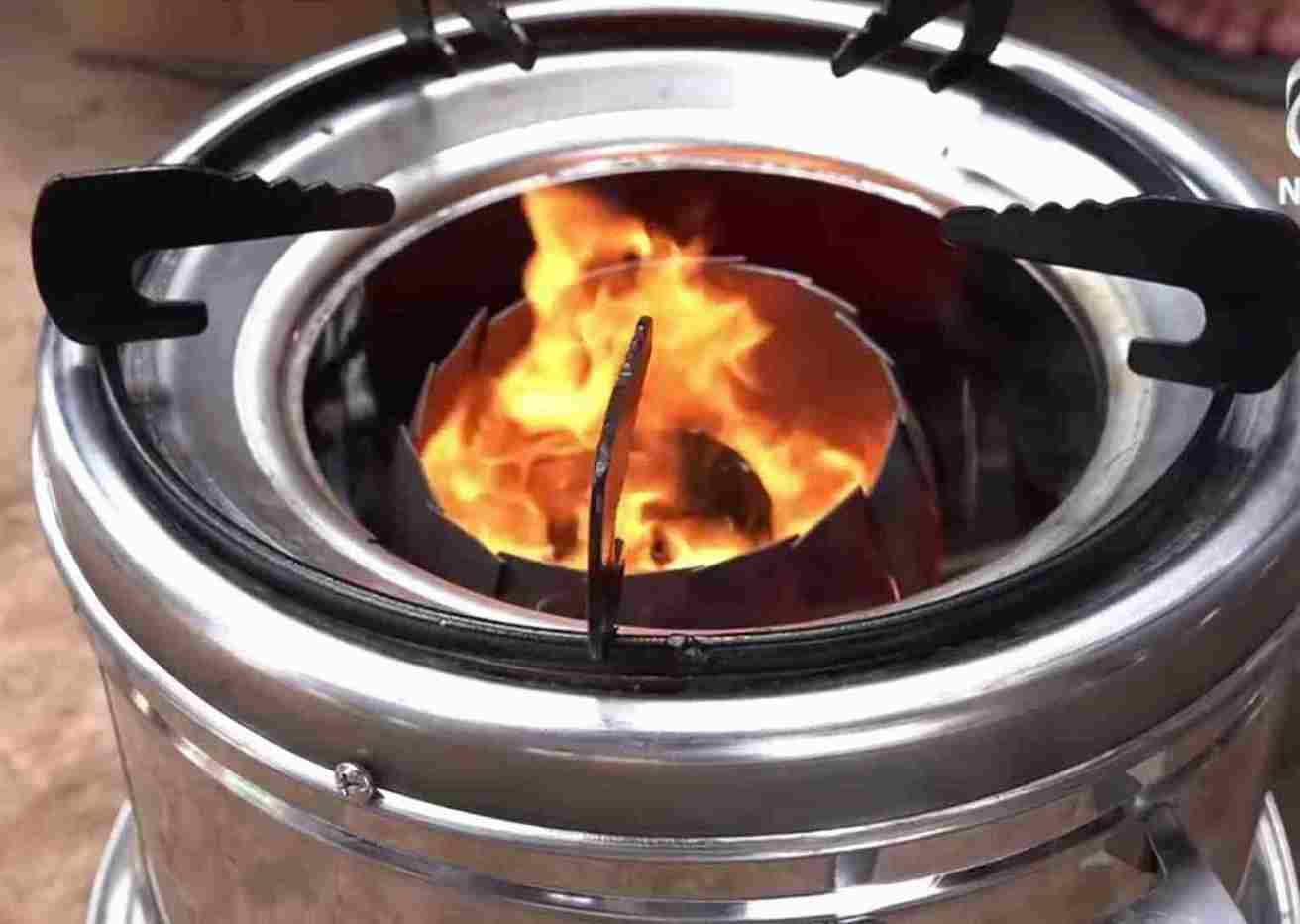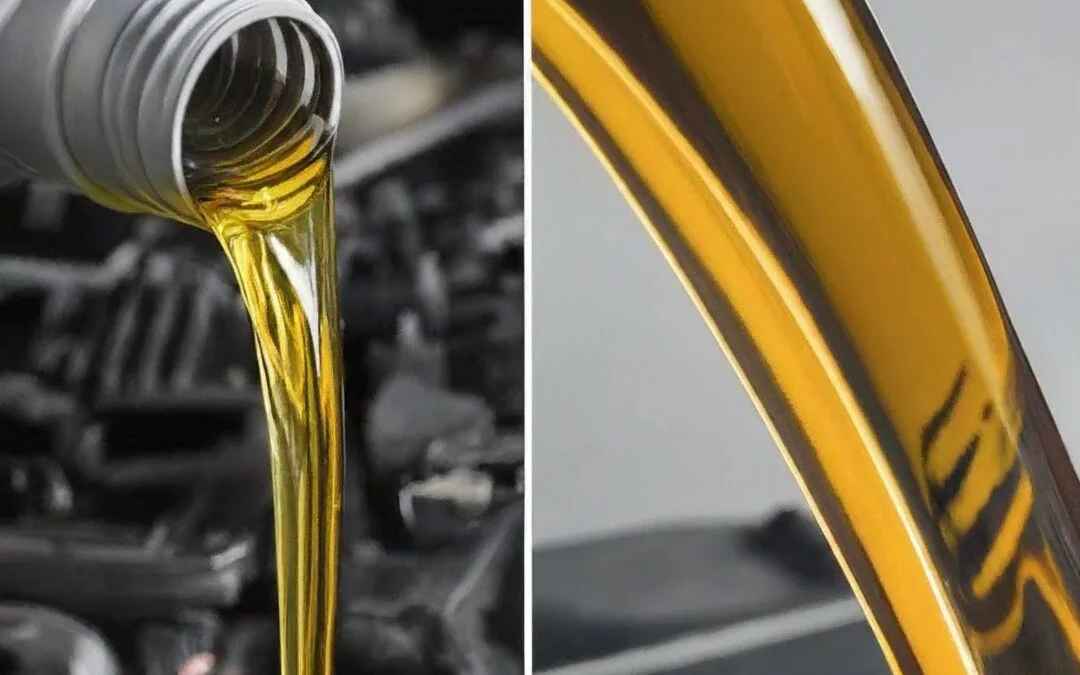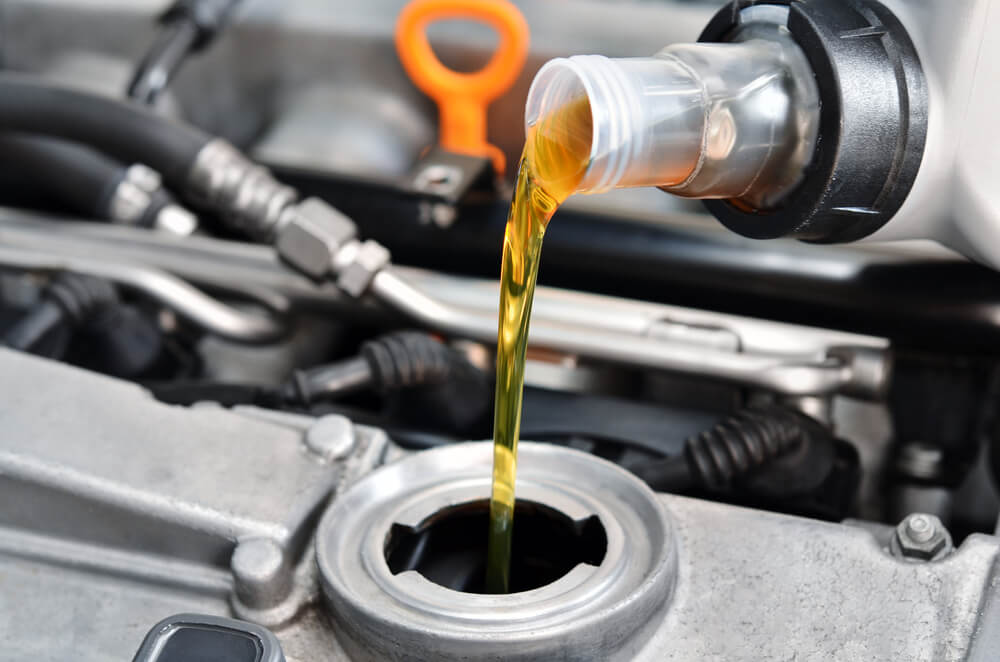Title: “Exploring the World of Motor Oil Burners: Efficiency, Sustainability, and More”
Introduction to Motor Oil Burners:
In a world where sustainability and energy efficiency are paramount, unconventional heating methods are gaining attention. One such method is the use of a motor oil burner, a unique system that harnesses the energy potential of used motor oil for heating. As a cost-effective and eco-friendly alternative to traditional heating systems, motor oil burners are becoming a compelling choice for homeowners and businesses alike. In this exploration, we’ll dive into the world of motor oil burners, uncovering their efficiency, sustainability, mechanics, and benefits, while also addressing safety considerations and real-life experiences. Discover how these innovative heating solutions are reshaping the way we stay warm while promoting environmental responsibility.
What is a Motor Oil Burner?
A motor oil burner is an innovative heating system that repurposes used motor oil as a sustainable and cost-effective source of heat. It offers an environmentally responsible alternative to traditional heating methods, making it an attractive choice for both homeowners and businesses. But what exactly is a motor oil burner, and how does it work?
Defining a Motor Oil Burner
A motor oil burner is a heating appliance specifically designed to convert used motor oil, often collected from oil changes or automotive maintenance, into heat energy. This energy is then utilized to warm spaces, water, or other applications, making it a versatile and efficient heating solution.
How Does It Work?
The operation of a motor oil burner can be broken down into several key steps:
- Oil Collection: Used motor oil, which would otherwise be discarded or recycled, is collected and stored in a designated reservoir.
- Preparation: The collected oil may go through a filtration process to remove impurities and ensure its suitability for combustion.
- Combustion Chamber: The motor oil is fed into a combustion chamber, where it is ignited by a burner unit. This process generates intense heat.
- Heat Exchange: The heat produced in the combustion chamber is then transferred to air or water, which is circulated throughout the heating system to provide warmth to the desired space or application.
Advantages of Motor Oil Burners
Motor oil burners offer a range of advantages, making them a compelling heating solution:
- Cost Savings: Using used motor oil reduces the cost of fuel, resulting in significant savings on heating expenses.
- Sustainability: By repurposing waste oil, motor oil burners contribute to recycling efforts and reduce the environmental impact of used oil disposal.
- Efficiency: These systems are known for their high energy efficiency, making them an economically viable choice.
- Versatility: Motor oil burners can be adapted for various heating needs, including space heating, water heating, and industrial applications.
- Reduced Dependence on Conventional Fuel: They offer an alternative to traditional heating fuels like natural gas, heating oil, or electricity
Efficiency and Cost Savings with Motor Oil Burners
Efficiency and cost savings are two of the most compelling reasons to consider using a motor oil burner as your heating solution. These innovative systems offer a range of benefits that not only reduce heating expenses but also contribute to sustainable energy practices. Here’s a closer look at how motor oil burners excel in efficiency and cost savings:
1. Fuel Cost Reduction:
The primary advantage of motor oil burners lies in their ability to utilize used motor oil as a fuel source. This repurposing of waste oil provides a significant reduction in heating costs. Instead of purchasing traditional heating fuels, such as heating oil, natural gas, or electricity, you can capitalize on a resource that would otherwise be discarded. This translates to substantial savings for homeowners and businesses, especially in regions where traditional heating fuels can be costly.
2. High Energy Efficiency:
Motor oil burners are renowned for their energy efficiency. The combustion process is carefully controlled to extract the maximum amount of heat energy from the used motor oil. This efficiency minimizes waste and ensures that you get the most out of your available fuel. As a result, you’ll find yourself using less fuel to achieve the same level of heating, further enhancing cost savings.
3. Versatile Applications:
Motor oil burners are highly adaptable, making them suitable for a variety of heating applications. Whether you need space heating for your home, hot water for your business, or heat for industrial processes, motor oil burners can be tailored to meet your specific requirements. Their versatility allows you to maximize efficiency across different heating needs.
4. Sustainable Fuel Source:
One of the standout features of motor oil burners is their sustainability. By repurposing used motor oil, these systems contribute to waste reduction and environmental responsibility. They help divert waste oil from landfills or improper disposal, which can have detrimental environmental consequences. Choosing a motor oil burner not only saves money but also aligns with eco-conscious practices.
5. Reduced Dependence on Traditional Fuels:
Motor oil burners provide an alternative to traditional heating fuels, reducing your dependence on conventional sources. This can be especially advantageous in regions with fluctuating fuel prices or limited access to natural gas. It offers a degree of energy independence and stability in the face of volatile energy markets.
Sustainability and Environmental Impact of Motor Oil Burners
In an era where environmental responsibility and sustainability are paramount, innovative heating solutions like motor oil burners have gained prominence for their ability to reduce environmental impact while providing efficient heating. Let’s explore how motor oil burners are making a positive difference in terms of sustainability and their environmental impact:
1. Waste Oil Repurposing:
Motor oil burners represent a sustainable way to repurpose waste oil. Used motor oil, which would otherwise be a hazardous waste material, finds new life as a valuable heat source. This reduces the burden on landfills and minimizes the risk of oil leakage into the environment, benefiting both local ecosystems and public health.
2. Reduced Carbon Footprint:
Compared to traditional heating systems that rely on fossil fuels, motor oil burners offer a reduced carbon footprint. Using waste motor oil as a heating source reduces the need for new oil production or the extraction of natural gas, contributing to a decrease in greenhouse gas emissions.
3. Resource Conservation:
By harnessing the energy potential of used motor oil, motor oil burners decrease the demand for virgin resources. This, in turn, conserves valuable resources and helps protect natural habitats and ecosystems.
4. Mitigation of Improper Disposal:
One of the challenges with used motor oil is its improper disposal, which can lead to environmental contamination. Motor oil burners mitigate this problem by offering a responsible and controlled method of disposal. This helps prevent soil and water pollution, safeguarding the environment.
5. Support for Recycling:
Motor oil burners align with recycling efforts. Instead of viewing used motor oil as waste, these systems see it as a valuable resource that can be recycled and repurposed for heat generation. This supports the broader recycling and circular economy initiatives.
6. Reduction in Energy Waste:
The high efficiency of motor oil burners means that more of the energy in the used oil is converted into usable heat. This minimizes energy waste and ensures that you get the most out of your heating source.
7. Environmental Responsibility:
Choosing a motor oil burner demonstrates a commitment to environmental responsibility. It’s a proactive choice that can align with corporate sustainability goals, eco-friendly initiatives, and personal ethical values.
How Motor Oil Burners Work: Turning Waste into Warmth
Motor oil burners are ingenious devices that convert used motor oil, which would typically be disposed of as waste, into a valuable heat source. Their operation is based on a straightforward yet highly efficient process. Here’s a closer look at how motor oil burners work:
1. Oil Collection and Filtration:
The process begins with the collection of used motor oil. This oil is often collected from oil changes, automotive maintenance, or other sources. To ensure that the oil is suitable for combustion, it may undergo a filtration process to remove impurities and contaminants. This step is essential to maintain the efficiency and longevity of the motor oil burner.
2. Controlled Combustion:
The filtered used motor oil is then introduced into a combustion chamber within the motor oil burner. Here, a precisely controlled environment is created. An ignition system ignites the oil, initiating the combustion process. This results in the production of high-temperature, high-energy flames.
3. Heat Exchange:
The intense heat generated during combustion is now harnessed for its valuable thermal energy. This heat is transferred to a heat exchanger within the motor oil burner. The heat exchanger typically consists of coils or tubes through which air or water flows. As it passes through these heated coils, the air or water absorbs the thermal energy, thereby raising its temperature.
4. Distribution of Heat:
The heated air or water is then directed to the intended heating application. In residential or commercial settings, the warmed air can be circulated through ducts and vents to provide space heating. Alternatively, hot water can be distributed to radiators or underfloor heating systems. Industrial applications can utilize this heat for various processes, such as drying or industrial heating.
5. Exhaust Management:
The byproducts of combustion, including flue gases and particulate matter, are carefully managed to ensure safety and minimize environmental impact. Modern motor oil burners often incorporate exhaust systems that further clean the emissions, reducing their impact on air quality.
6. Ongoing Maintenance:
To ensure the continued efficiency and safety of the motor oil burner, regular maintenance is essential. This includes tasks such as cleaning and inspecting the combustion chamber, checking and replacing filtration elements, and monitoring the burner’s overall performance.
7. Sustainability and Cost Savings:
In the final analysis, a motor oil burner not only provides efficient heating but also promotes sustainability and cost savings. It enables the repurposing of waste motor oil, reducing the need for conventional heating fuels and minimizing energy expenses.
In essence, motor oil burners are a prime example of how innovative engineering can transform a potential environmental issue into an efficient and sustainable heating solution. By converting used motor oil into a valuable heat source, these systems are not only cost-effective but also eco-friendly, contributing to a greener and more responsible approach to energy consumption.
Benefits of Using Motor Oil Burners: Efficient, Sustainable, and Cost-Effective
Motor oil burners have gained recognition as a powerful heating solution that delivers a host of benefits to homeowners, businesses, and the environment. These innovative systems are not only cost-effective but also sustainable and efficient. Let’s explore the many advantages of choosing a motor oil burner as your heating source:
1. Cost Savings:
- One of the most significant benefits of motor oil burners is the substantial cost savings they offer. By utilizing used motor oil, which is often available at little to no cost, these systems significantly reduce heating expenses. This is especially advantageous in regions with expensive traditional heating fuels like heating oil, natural gas, or electricity.
2. Energy Efficiency:
- Motor oil burners are renowned for their energy efficiency. They extract a high percentage of the available heat energy from the used oil, leaving minimal waste. This efficiency translates to lower fuel consumption and ensures that you get the most out of your heating source.
3. Environmental Responsibility:
- Choosing a motor oil burner is an environmentally responsible decision. By repurposing used motor oil as a clean heat source, these systems contribute to waste reduction and a reduced carbon footprint. This aligns with the principles of environmental sustainability and responsible energy use.
4. Resource Conservation:
- Motor oil burners help conserve valuable resources by repurposing waste oil. This reduces the demand for new oil production and helps protect natural habitats and ecosystems.
5. Waste Reduction:
- Motor oil burners mitigate the improper disposal of used motor oil, which can lead to environmental contamination. Instead of being viewed as waste, used motor oil is responsibly managed and converted into heat, reducing the risk of pollution.
6. Versatility:
- Motor oil burners can be adapted for various heating needs. They are suitable for space heating in residential and commercial settings, hot water production, and industrial applications. Their versatility allows you to maximize efficiency across different heating requirements.
7. Reduced Dependence on Traditional Fuels:
- By offering an alternative to traditional heating fuels, motor oil burners provide a degree of energy independence. They reduce dependence on fluctuating fuel prices and can enhance your resilience in the face of energy market volatility.
8. Recycling Support:
- Motor oil burners contribute to recycling efforts by repurposing used motor oil. This supports broader recycling and circular economy initiatives, aligning with the principles of resource sustainability.
Maintenance and Troubleshooting for Motor Oil Burners: Ensuring Reliable Heating
Motor oil burners are known for their cost-effective and sustainable approach to heating. To maintain their efficiency and reliability, regular maintenance and effective troubleshooting are essential. Here’s a guide to help you keep your motor oil burner in optimal working condition:
Maintenance for Motor Oil Burners:
- Regular Cleaning: Routine cleaning is crucial for preventing the build-up of soot, carbon deposits, and other residues in the combustion chamber and flue passages. This buildup can reduce the burner’s efficiency and increase the risk of malfunctions.
- Check and Replace Filters: Filtration is a critical component in ensuring that only clean and suitable oil enters the combustion chamber. Regularly check and replace filters as needed to maintain optimal fuel quality.
- Inspect Electrical Components: The ignition system and other electrical components should be inspected for signs of wear, damage, or corrosion. Faulty electrical components can lead to ignition problems and heating system failures.
- Lubricate Moving Parts: Proper lubrication of moving parts, such as fans and pumps, ensures smooth and efficient operation. Regularly lubricate these components according to the manufacturer’s recommendations.
- Evaluate the Combustion Process: Periodically assess the combustion process for signs of inefficiency or irregularities. A well-tuned burner should produce clean, blue flames, indicating efficient combustion. If you notice yellow or sooty flames, it’s a sign of incomplete combustion, which requires adjustment.
Troubleshooting Common Issues:
- No Heat or Insufficient Heat: If your motor oil burner isn’t producing enough heat or isn’t functioning at all, check for fuel supply issues, clogged filters, and electrical component malfunctions. Additionally, verify that the combustion chamber is clean and in good condition.
- Excessive Soot or Carbon Buildup: The accumulation of soot or carbon deposits can hinder combustion efficiency. Regular cleaning, proper filtration, and adjustment of the air-to-fuel ratio can help prevent this issue.
- Flame Irregularities: Yellow or flickering flames can indicate problems with combustion. This could be due to inadequate fuel supply, incorrect air-to-fuel mixture, or a malfunctioning ignition system. Adjustments may be necessary.
- Oil Leaks: Oil leaks can lead to safety hazards and environmental concerns. Check all connections and seals for signs of leakage. Address any issues immediately, and ensure proper containment and disposal of any spilled oil.
- Excessive Noise: Unusual or loud noises from the burner may indicate worn or malfunctioning components. It’s essential to identify and address the source of the noise to prevent further damage.
- Ignition Failures: If the burner fails to ignite, inspect the ignition system, fuel supply, and the condition of the fuel. Ensure that there’s a consistent and clean fuel supply to the burner.
- Safety Shutdowns: Motor oil burners have safety mechanisms that can shut down the system in case of malfunctions or unsafe conditions. If the burner repeatedly shuts down, investigate the cause, and rectify any issues promptly.
It’s important to note that maintenance and troubleshooting may require technical expertise, so consulting a professional or following manufacturer guidelines is advisable for more complex issues. Routine maintenance, regular inspections, and immediate troubleshooting can help ensure that your motor oil burner provides reliable and efficient heating while minimizing the risk of unexpected breakdowns.
Regulations and Compliance for Motor Oil Burners: Meeting Safety and Environmental Standards
Motor oil burners, like other heating systems, are subject to regulations and compliance standards to ensure safety, environmental responsibility, and efficient operation. Understanding and adhering to these regulations is essential for homeowners, businesses, and installers. Here’s a closer look at the key aspects of regulations and compliance for motor oil burners:
1. Environmental Standards:
- Motor oil burners must adhere to strict environmental regulations. The disposal and handling of waste oil, a primary fuel source for these burners, are governed by environmental agencies. Compliance ensures that the environmental impact is minimized, and waste oil is properly managed to prevent soil and water contamination.
2. Emissions Control:
- Emissions from motor oil burners can have an impact on air quality. Regulations and compliance standards set limits on emissions of pollutants such as nitrogen oxides (NOx) and particulate matter. Burners must incorporate technologies and features that control and reduce these emissions.
3. Safety Standards:
- Safety is paramount in heating systems, and motor oil burners are no exception. Compliance with safety standards ensures that these burners are designed and installed to minimize fire risks and ensure the safety of users and property.
4. Combustion Efficiency:
- To conserve energy and reduce pollution, regulations often set standards for combustion efficiency. Motor oil burners must be designed and maintained to ensure that fuel is burned efficiently and effectively to provide maximum heat while minimizing waste.
5. Installation and Maintenance:
- Compliance with installation and maintenance guidelines is essential. These guidelines ensure that burners are installed correctly and that they are maintained in a manner that promotes safety, efficiency, and longevity. Improper installation and maintenance can lead to breakdowns and safety hazards.
6. Permitting and Reporting:
- In many regions, the installation and operation of motor oil burners may require permitting and reporting to local authorities. This is to ensure that heating systems meet all safety and environmental requirements and to facilitate oversight and compliance.
7. Manufacturer Recommendations:
- Adhering to manufacturer recommendations is a critical aspect of compliance. Manufacturers provide guidelines on the installation, operation, and maintenance of their specific motor oil burners. Compliance with these recommendations ensures that the burner operates as intended and is covered by warranties.
To meet regulations and compliance standards, it’s important to work with certified and qualified professionals during the installation and maintenance of motor oil burners. Additionally, users should be aware of local, state, and national regulations related to heating systems. Non-compliance can lead to penalties, safety hazards, and environmental consequences.
Real-Life Experiences with Motor Oil Burners: Proven Efficiency and Sustainability
Real-world examples and case studies provide tangible evidence of the benefits of motor oil burners. These heating systems have been adopted by individuals, businesses, and industries, showcasing their efficiency, cost-effectiveness, and sustainability. Here are some notable case studies and real-life experiences that highlight the advantages of using motor oil burners:
1. Residential Heating:
- Many homeowners have transitioned to motor oil burners for their home heating needs. In one case, a family in a region with expensive heating oil found that using a motor oil burner significantly reduced their annual heating costs. By repurposing used motor oil collected from their own vehicle maintenance and oil changes, they not only saved money but also responsibly managed their waste oil.
2. Commercial Applications:
- Numerous businesses, such as auto repair shops, have integrated motor oil burners into their heating systems. One case study found that a car service center was able to recycle used motor oil, reducing their waste disposal costs and providing a sustainable heating source. This not only improved their bottom line but also aligned with their commitment to eco-friendly practices.
3. Agricultural and Industrial Uses:
- Agriculture and industry are among the sectors that benefit from the versatility of motor oil burners. In an agricultural case study, a dairy farm used a motor oil burner to provide heat to their facilities during the winter. The burner was modified to run on used vegetable oil collected from the farm’s kitchen, effectively reducing heating expenses and promoting sustainability.
4. Restaurant and Hospitality Sector:
- The restaurant and hospitality industry also recognizes the value of motor oil burners. A case study from a restaurant chain demonstrated how used cooking oil could be efficiently converted into heat for their establishments. This not only saved on energy costs but also presented an eco-friendly image to their customers.
5. Educational Institutions:
- In educational institutions, such as schools and universities, motor oil burners are gaining traction. One case study highlighted a school district that adopted motor oil burners to reduce their energy expenses. The district collected used motor oil from its school buses and maintenance operations, promoting a sense of responsibility and resource conservation among students.
6. Remote Locations:
- Remote or off-grid locations where traditional fuel sources are expensive or challenging to access have also benefited from motor oil burners. Case studies of lodges, cabins, and research stations in remote areas have shown that these burners offer reliable and cost-effective heating solutions, often using locally sourced used motor oil.
These real-life experiences and case studies underscore the practicality, efficiency, and sustainability of motor oil burners. They highlight how these systems not only reduce heating costs but also contribute to waste reduction, environmental responsibility, and resource conservation. As more individuals and organizations embrace the advantages of motor oil burners, these systems are making a positive impact on both their budgets and the environment.
Conclusion: A Greener and More Efficient Path to Heating
In the world of heating solutions, the motor oil burner stands out as a shining example of innovation, sustainability, and efficiency. This versatile system repurposes used motor oil, converting a potential waste product into a valuable source of heat. As demonstrated by numerous real-life experiences and case studies, motor oil burners have proven themselves as cost-effective alternatives for residential, commercial, industrial, and remote heating needs.





Leave a Reply